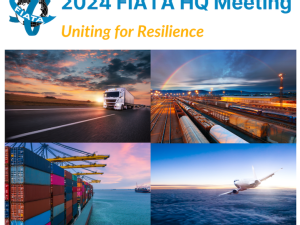Two sets of parcel bombs in the past week -- addressed from Yemen to the United States and from Greece to several foreign governments -- have focused attention on security in the air cargo industry and led Germany to seek action at European Union level.
Some western governments have suspended air cargo shipments from Yemen and Somalia after the discovery in Dubai and Britain of suspected al Qaeda parcel bombs. The devices were concealed in printer cartridges dispatched from Yemen and addressed to Chicago synagogues, though U.S. and British officials said they appeared designed to be detonated in flight.
While these suspensions may stay in place, a halt to air shipment of mail and packages from Greece, after bombs were sent from there to leaders in France, Germany and Italy, is set to last just 48 hours.
Experts caution that putting in more and more levels of security can swiftly go from being an irritant to becoming economically damaging in its own right, and a determined attacker may still find a way around.
"There is a limit to what you can achieve by security," said Fred Burton, a former U.S. anti-terrorism official who is now vice president of risk consultancy Stratfor. "What you really need is human intelligence and the capability to analyse it."
Air cargo firms are already warning that the cost of scanning every item of cargo would be prohibitive. Some see parallels to previous arguments over the scanning of sea containers, an obvious means of transporting weapons: ultimately it was deemed impractical to scan or examine every single one.
Consumers around the world have got used to easy deliveries of goods ordered over the Internet, and a couple of failed attacks will not change that.
"The question is whether it is enough for people to want to give up the convenience," said Brooke Rogers, lecturer in risk and terror at King's College London. "That means it has to be a big enough event to really change risk perceptions. 9/11 was enough to do that. This almost certainly will not be."
COMMUNITY RELATIONS
Key targets such as national leaders and ministries can be detected by mail screening. Nicolas Sarkozy, Angela Merkel and Silvio Berlusconi were never in real danger from the Greek bombs. But protecting the wider cargo system is another matter.
And there is evidence that intelligence is simply more effective than heightened security measures at disrupting plots.
A study published last month by the Institute for Homeland Security Systems of 88 militant attacks within the United States between 1999 and 2009 showed more than 80 percent were detected through law enforcement or public tipoffs.
Roughly one in five were foiled "accidentally" in the course of regular law enforcement activities and investigations into apparently unrelated crimes. Around 40 percent were detected from tips from the local community, showing the importance of good relations and sources within key populations.
In the case of the parcel bombs, that means foiling repeats will come down mainly to how effectively Greek, Yemeni and Saudi authorities operate in their own backyards. The Yemeni packages were intercepted on a Saudi intelligence tip-off.
"With a bombing campaign, the key thing is always finding the bomb maker," said Burton. "If you can do that, you may be able to shut down the entire operation or at least make them start from scratch."
In the Yemen case, U.S. officials believe that means finding Saudi national Ibrahim Hassan al-Asiri. Asiri is also suspected of building a suicide bomb used by his brother in a failed attempt to kill Saudi counterterrorism chief Prince Mohammed bin Nayef last year, as well as the device used in an attempted Christmas Day attack on an airliner bound for Detroit.
In both Greece and Yemen, success may come down to how likely informants are











